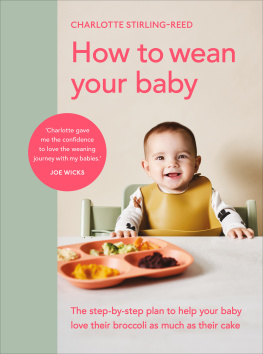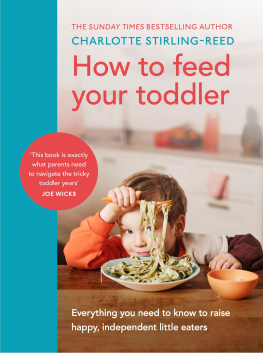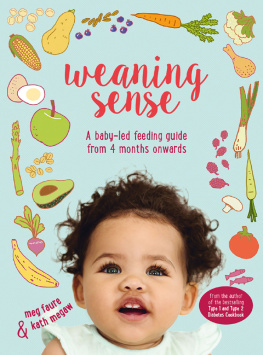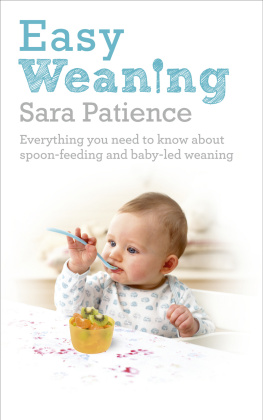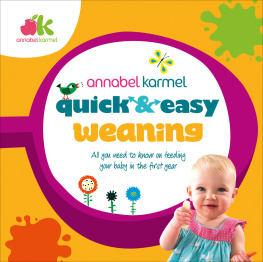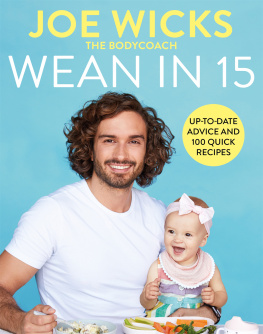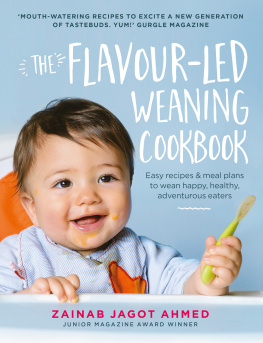CONTENTS


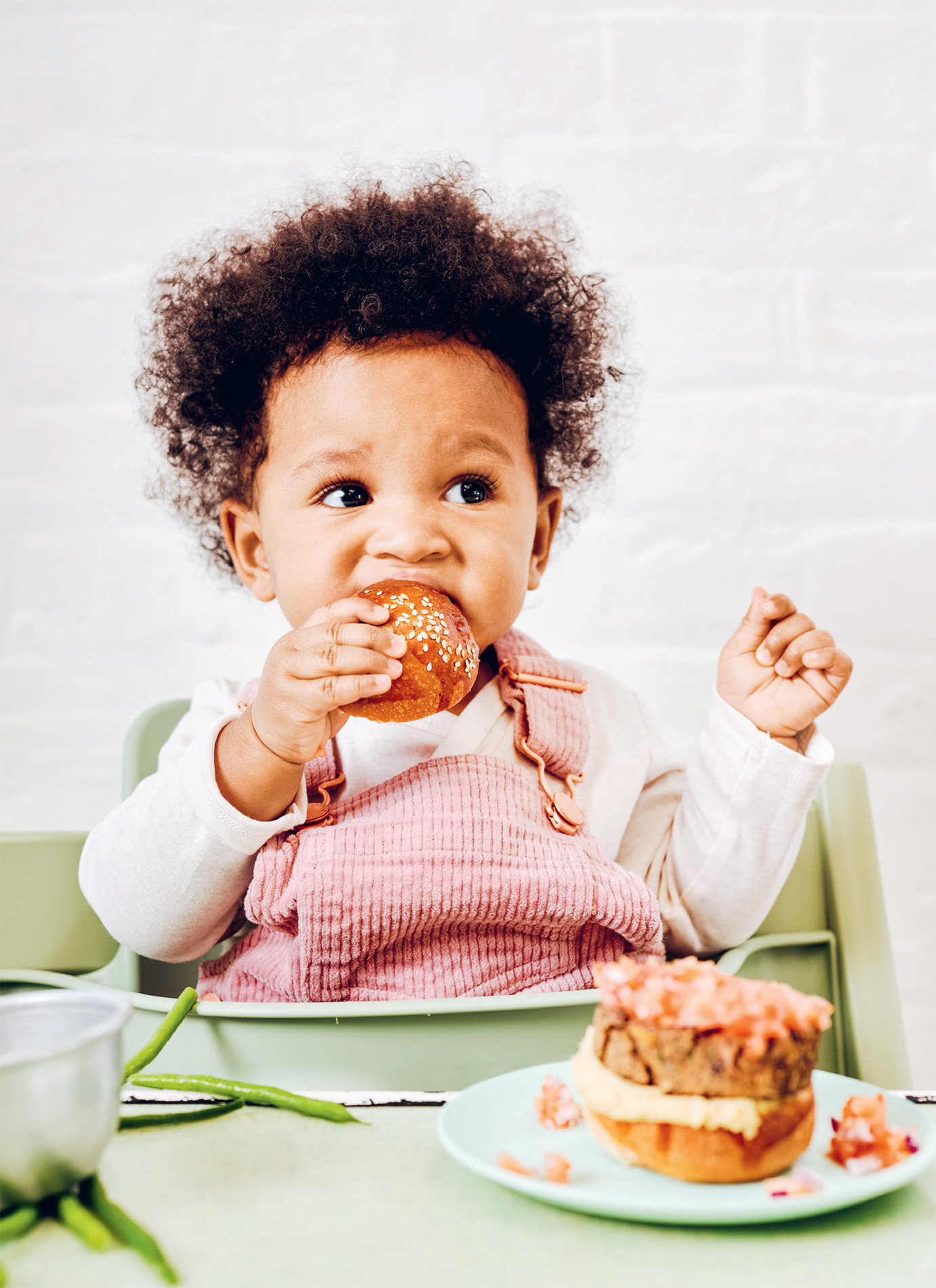
About the Author
Charlotte Stirling-Reed is a leading nutritionist based in the UK. She has a first class degree in Human Biology and Nutrition (BSc), a Masters (MSc) in Nutrition and Public Health, and is Registered with the Association for Nutrition.
Founder of her successful consultancy practice SR Nutrition Charlotte works with a variety of clients including global brands and celebrities. Charlotte is the nutritionist who worked with Joe Wicks on his Wean in 15 book and has a strong social media platform with nearly 200k followers on Instagram (@SR_Nutrition).
Charlotte started her career working for the NHS and has since spent many years working with families. Charlotte's own little foodie, Raffy, is three years old and still loves his broccoli.

I have spent so many years talking about the topic of weaning its something I speak about, think about and answer questions on every single day. You could say I live and breathe weaning!
I realised one thing from my experience of weaning my son, Raffy, as well as from talking to hundreds of parents every day: confidence is everything! So, Ive made it my mission to try to boost parental confidence in feeding babies and young children.
I always feel that weaning comes at a time when, as parents, we could really do without it. At six months were just beginning to feel weve come to terms with the lack of sleep, and feeding is often a little more structured, and finally we start to feel human again. Suddenly BAM! we must start considering mealtimes for babies, too.
This book aims to make this process easy and fun for new parents, so that we can enjoy raising the next generation of foodies; babies and children who are not only good little eaters, but who love food, mealtimes and eating!
Ive tried to make this book as practical as possible; Im a time-poor mum of two who is trying to juggle family life while running my own business. I dont have time to spend hours preparing gourmet recipes for my children lets be real. Thats exactly what my guide and my recipes are about being realistic, while still raising healthy children.
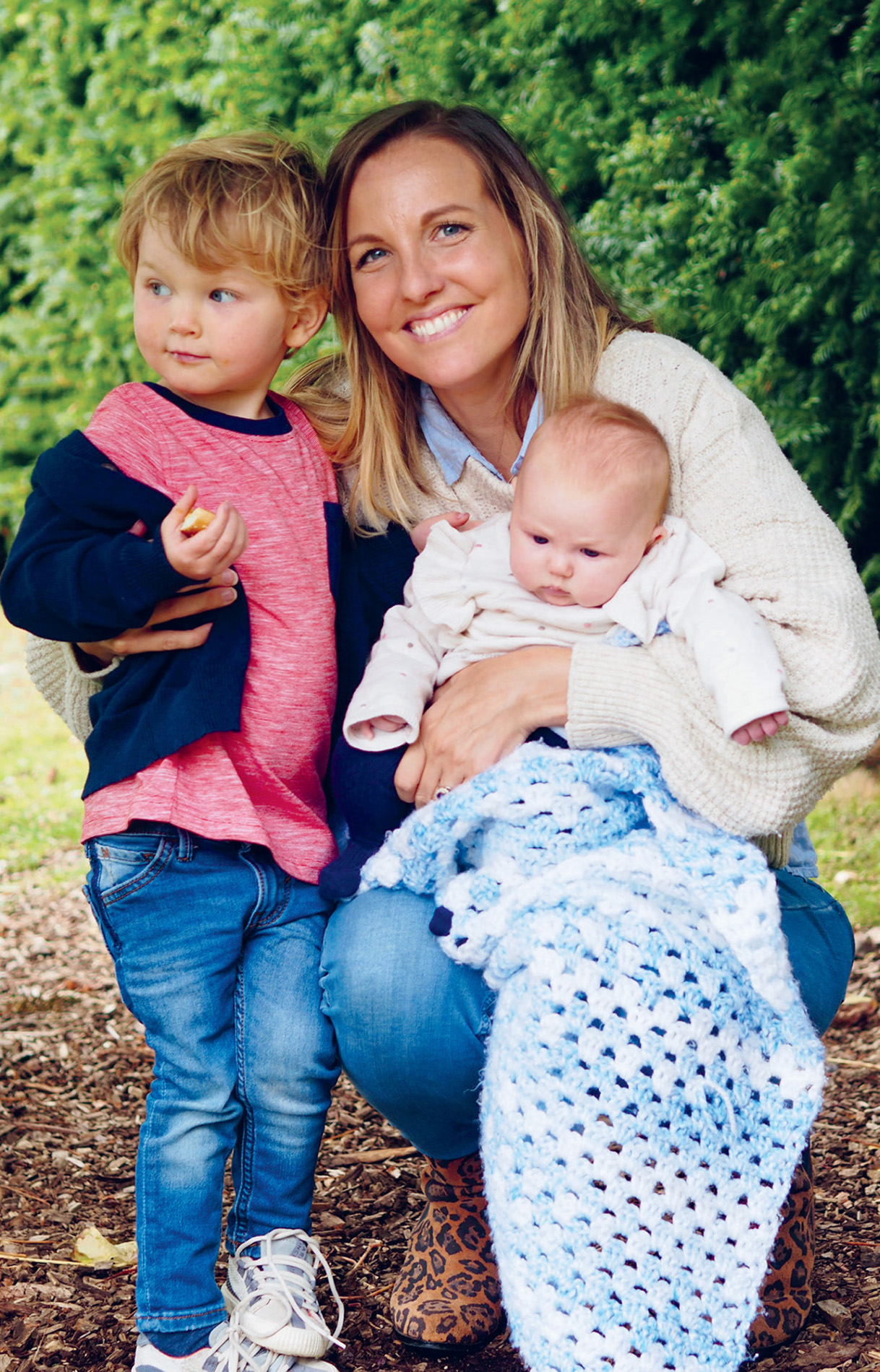
A BIT ABOUT ME
In todays connected, digital world, there are countless online experts sharing information about weaning and nutrition for children and babies; however, research or an understanding of the science of food does not always underpin their ideas.
As a registered nutritionist with a degree in Human Biology and Nutrition and a Masters in Nutrition and Public Health I aim to provide simple, realistic and practical advice, based on the most up-to-date research. I started my career with the UKs NHS, supporting new parents on their weaning journeys. Having since supported countless parents and having had two babies myself, I now have a real desire to share my knowledge and experience to help as many parents as possible.
Throughout this book Ive used my years of first-hand practical experience, alongside my scientific understanding of child nutrition, to help you overcome the uncertainties of weaning and make your journey as enjoyable as possible. There will always be bumps along the way, but by following my advice, each step of your weaning journey will be less scary and will help set your child up for a healthy relationship with food for life.
THE VEG-LED APPROACH
If youve followed me on social media (@SR_Nutrition) for any length of time, youll see that Im a big advocate of kicking off your babys weaning journey with vegetables.
Traditionally, babies tend to be weaned on more of the sweet stuff think fruit purees, semolina and baby rice. However, a great deal of research suggests that starting weaning by introducing vegetables first, frequently and in variety, might be a better way to go. Weaning with vegetables, and offering them in variety early on, can help to encourage an acceptance of these foods later on in life and, lets face it, many of us need all the help we can get to encourage kids to eat up their veggies!
Weaning is about learning to taste new foods and enjoy new flavours. Babies are born with a preference for sweet foods, and breast and formula milk are both fairly sweet. However, I like to encourage people to think about weaning as a process of exploring the new, not simply reinforcing existing preferences. A baby will readily accept and gobble up the sweet stuff, certainly; but the bitter, sour and savoury tastes? They need a little help to enjoy those tastes initially, and one of the ways this works is by offering them regularly and building familiarity with those flavours early on during weaning.
MYTH BUST!
I need to start my babys weaning journey with baby rice
This definitely isnt the case and packets of baby rice or porridge can be unnecessary and expensive. I recommend kicking weaning off with vegetables and, once youve moved through first tastes, you can offer your usual, plain porridge oats to baby.
WHY A 30-DAY GUIDE?
What Ive noticed from my work over the last few years is that weaning is a challenge for many parents who are super-anxious about the little details. Yet Ive also noticed that parents just need some clear guidance in the early weeks to help them become absolute pros when it comes to feeding their baby. Thats why Ive created a step-by-step guide to the first 30 days of weaning, starting with a veg-led approach. I know from experience that once parents have been guided through those first weeks of introducing solid foods, including what food to start with, how to introduce potential allergens etc., they will have acquired the confidence to feed their baby a beautifully varied and delicious diet, without all the stress and questions that so many parents encounter.
This guide condenses all the latest research, tips, practical hacks and my experience and knowledge, and puts them in your capable hands so can carry on your weaning journey with complete confidence.
My 5 key principles
These five key principles are important tips that I share with parents every single day. Try to keep them in mind during weaning, but also when feeding children of any age: they are crucial elements to encourage a love of food and to establish good eating habits for life.
If your little one isnt taking to solid foods as you would like if theyre starting to get a little fussy, or if you find yourself stuck in a rut with the foods youre offering come back to these tips and make sure each of them is well and truly in place. Write them down, bookmark this page or pin the list on to your fridge.
1. Keep it calm
The more anxious you get, and the more tense mealtimes are, the more youll find your little one doesnt really want to be a part of them. Keeping calm is often easier said than done, especially if you have a bit of an anxious personality (guilty!). However, what can really help is stepping away from
the idea of getting food into your childs tummy and focusing on the idea of making the mealtime environment a nice place to be. Think about it: if you were in a situation that felt negative or unpleasant, but you couldnt escape from it, youd soon start feeling a little reluctant to go back there day after day. If you can focus on making mealtimes an enjoyable occasion for both yourself and your little one, this can enhance the whole scenario.

